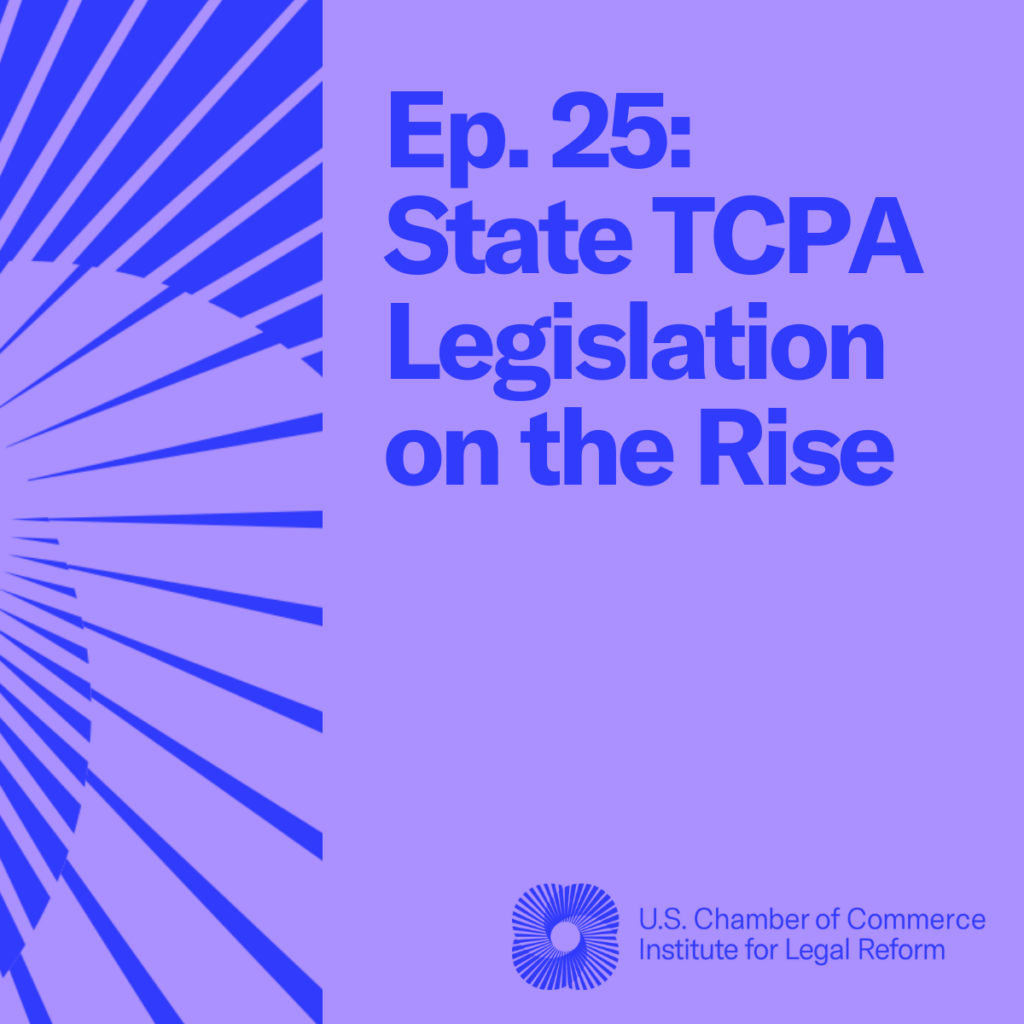Have you ever missed an important doctor’s appointment? Or forgot to pay a bill that was due? Do you wish you would have received a reminder—just a small thing to help balance all the details of your busy life? Imagine not being alerted to possible fraud on your credit card. Or when your favorite product is back in stock. These types of company communications make our lives easier. Abuse of the Telephone Consumer Protect Act (TCPA) makes it harder for businesses to communicate with you, the consumer, even when it comes to useful reminders.
The TCPA was signed into law in 1991 to curb the increase of fraudulent and personally invasive telemarketing practices. Though technology has rapidly evolved since then, the law has not, and that’s a problem. Plaintiffs’ lawyers have abused the outdated TCPA, making it harder for businesses to communicate with their customers. Motivated by the promise of substantial financial rewards, the plaintiffs’ bar and professional plaintiffs (also known as serial filers) have worked to expand the legal boundaries of certain TCPA provisions well beyond their intended scope, giving rise to a thriving market of questionable lawsuits.
For example, in 2016, the Snapping Shoals Electric Membership Corporation (“SSEMC”), a nonprofit, consumer-owned electric cooperative providing service to 97,000 consumers, used automated phone call notifications for disconnection and low balance notices. However, it had to discontinue these phone communications after they became the target of TCPA litigation—closing off an important channel for providing notices to its customers, many of whom were low-income and elderly.
Unfortunately, efforts to expand liability under the TCPA are not slowing down any time soon. Mark Dobronski, a well-known serial filer, recently submitted a Request for Clarification and Declaratory Ruling to the Federal Communications Commission (FCC) regarding the Commission’s “Caller ID” rule. The rule “prohibits anyone from transmitting misleading or inaccurate caller ID information with the intent to defraud, cause harm or wrongly obtain anything of value.” Mr. Dobronski’s petition seeks a ruling by the FCC that, if granted, would allow the Caller ID rule to now be subject to the TCPA’s private rights of action provision. This would allow individuals to privately enforce and bring lawsuits against companies that seemingly violate it. If granted, rather than stop illegal and unwanted calls—which is the purpose of the TCPA—this petition would just add fuel for the plaintiffs’ bar and serial litigants to seek payouts from legitimate companies engaging in legitimate communications.
ILR is urging the Commission not to grant the petition and submitted comments to the FCC outlining why Mr. Dobronski’s rulemaking petition should not be granted. The comments point out that:
- The petition seeks clarification based on alleged confusion in the courts regarding the scope of the TCPA’s private right of action; however, there is no such confusion that would necessitate FCC action. Instead, court decisions have consistently found that the Caller ID Rule is not subject to the TCPA’s private right of action.
- The Commission does not have the authority—or, at minimum, would be required to undergo notice-and-comment rulemaking under the Administrative Procedure Act (“APA”)—to do what the petition is asking.
- Rather than fueling TCPA litigation abuse, which granting the petition would do, the FCC should continue to focus its efforts on stopping illegal and unwanted robocalls from bad actors, which will best help consumers.
In April 2021, the U.S. Supreme Court decision in Facebook Inc. v. Duguid was a step in the right direction for curbing TCPA litigation abuses. The Court narrowed the definition of another provision of the TCPA—one that had been broadened by the plaintiffs’ bar to bring more lawsuits against companies under that specific statute. If granted, this petition will allow for a similar pattern to emerge. Plaintiffs’ firms and serial filers who are bent on racking up high settlements will capitalize on the FCC’s Caller ID Rule under the TCPA’s private right of action clause. This will only spur more misuse of an archaic law, cause an increase in frivolous lawsuits, and drain American businesses of time and resources. The FCC should not grant this petition and should instead work to crack down on real fraudsters.



